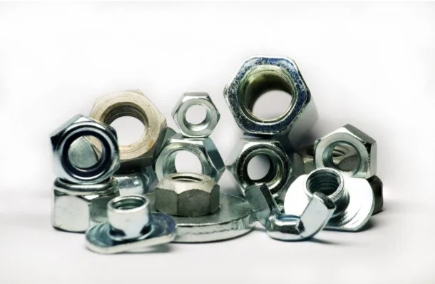Are Nuts Strong Enough to Withstand Most Usage Environments?
Nuts are essential fasteners used across countless industries. Thanks to their general-purpose design and safety margins, they are often believed to be suitable for most usage scenarios. However, this assumption may lead to premature failure in demanding environments. In reality, selecting the right nut depends heavily on the specific conditions of use—including temperature, corrosion, load, and vibration.
As a professional fastener manufacturer, XINCHI is happy to help you analyze the key factors. In this article, we’ll break down how nuts perform under various conditions, when standard types are sufficient, and when you need to consider specialized materials or coatings.

Are Standard Nuts Truly Universal?
As a universal component, nuts are designed with built-in safety redundancies. In typical usage scenarios, standard materials such as Grade 8.8 carbon steel or A2-70 stainless steel perform well and can handle over 80% of industrial applications. However, special conditions require custom solutions.
Misconception: “One Nut Fits All”
Using a carbon steel nut in a corrosive or high-temperature environment, for instance, can lead to quick degradation or connection failure. It’s vital to match material and performance to the specific use case.
Factors That Influence Nut Selection
Material & Process Compatibility
Standard Grades:
8.8 carbon steel / A2-70 stainless steel — Ideal for general-purpose use.
Special Environments:
A4-80 stainless steel — Suitable for high temperatures.
Titanium alloy (e.g., TC4) — Recommended for marine or aerospace use.
Compliance with International Standards
Well-established standards like ISO, GB, and ASTM specify classification for strength, corrosion resistance, and temperature tolerance—making them reliable for most industrial settings.
When Standard Nuts Are Not Enough
Some environments present extreme challenges where standard nuts fail to deliver. These require advanced materials and design considerations.
Extreme Conditions
Ultra-high temperatures (>500°C):
Risk: Softening of carbon steel nuts.
Solution: Use nickel-based alloys like Inconel 718.
Highly corrosive environments (e.g., hydrofluoric acid):
Solution: Use Hastelloy nuts.
Ultra-low temperatures (<-50°C):
Risk: Brittleness.
Solution: Use austenitic stainless steel or aluminum alloy.
Unique Mechanical Demands
High-frequency impact loads:
Requires high-toughness materials (e.g., titanium alloys).
Fretting or wear due to vibration:
They need special coatings like DLC (diamond-like carbon) or self-lubricating nuts.
Selection Strategy & Risk Control of Choosing the Right Nut
Choosing the right nut is a risk mitigation strategy in itself. Here’s a quick guide based on common scenarios:
For general industrial assembly, Grade 8.8 carbon steel or A2-70 stainless steel nuts are recommended. Regular inspection of preload loss helps manage risk.
For corrosive chemical environments, A4-80 stainless steel or Hastelloy nuts are advisable. Avoid direct contact with dissimilar metals.
For aerospace applications, TC4 titanium alloy or Inconel 718 nuts are recommended. Fatigue life simulations and real-condition tests are essential.
Conclusion: Design with the Right Fastener in Mind
Standard-grade nuts work well for most general environments, but extreme or specialized conditions demand careful selection of materials and manufacturing processes.
XINCHI is a trustworthy fastener company, especially in furniture nuts. We have a factory, founded in 2007. We are the designated fastener supplier to“STAPLE”. As a trusted fastener supplier, XINCHI can offer a wide range of high-quality fasteners, including nuts, screws, bolts, rivets, washers, etc. If you want to know more about fasteners or want to wholesale fasteners, please feel free to contact us. Our experienced and expert service team will reply to you as soon as possible.

